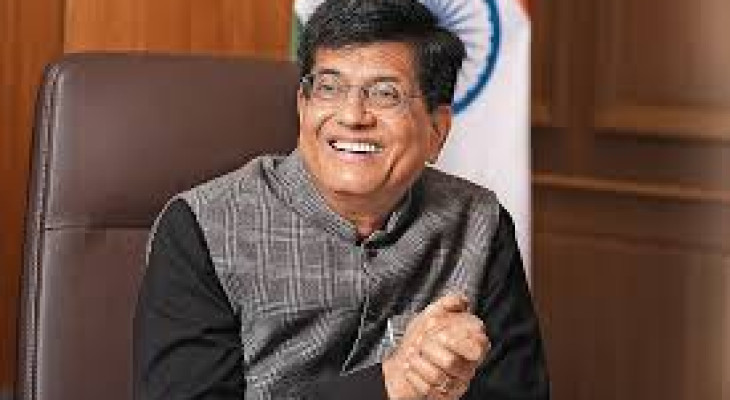Agri exports can jump from ₹4.5L to ₹20L Cr if India scales food processing, drip irrigation, and smart packaging

Union Commerce and Industry Minister Shri Piyush Goyal today painted a bold and ambitious vision for India’s agriculture sector—projecting a potential jump in agriculture exports from ₹4.5 lakh crore to ₹20 lakh crore if the country embraces modern processing, packaging, and branding techniques.
Speaking at the ICC: Krishi Vikram Thematic Session in the capital, Goyal emphasised that India is no longer just the land of wheat and rice. The country’s export basket is now expanding to include jamun, litchi, pineapple, and bottle gourd, with consignments of litchis from Punjab reaching Doha and Dubai and jamun making its way to the UK.
“This is the new India, where even a humble fruit like jamun finds a market abroad,” he said, adding that the global push for millets, championed by Prime Minister Narendra Modi during the International Year of Millets, has helped spotlight India’s ancient grains on the world stage.
Climate-smart agriculture must be the future
Goyal called for urgent scaling of drip irrigation, describing it as a “mass movement in the making.” He underlined that in a country heavily reliant on rain-fed agriculture, smart irrigation could make farming more predictable, sustainable, and climate-resilient.
From small village water bodies to mobile-operated energy-efficient water pumps, the minister urged farmers and entrepreneurs to invest in smarter systems that reduce input costs, cut electricity usage, and minimise water waste.
“These aren’t just gadgets; they’re tools of empowerment,” he said. “Smart pumps connected to drip systems can transform how we farm, especially in rural India.”
From local fields to global shelves
India’s growing presence in global agri markets, particularly across the Gulf, UK, and Southeast Asia, is not just a sign of commercial success but a testament to the hard work of Indian farmers, said Goyal. He stressed that packaging, organic certification, and branding are critical to helping Indian produce stand out internationally.
The government is tightening organic certification norms using blockchain to ensure traceability and consumer trust, while also offering assistance for better packaging and product design to help Indian goods shine on the global shelf.
Empowering farmers, women, and markets
The minister also highlighted several government-backed initiatives that are reshaping Indian agriculture:
- PM-Kisan Yojana continues to provide direct financial support to farmers.
- Fertiliser subsidies have been expanded to contain rising input costs.
- Over 1,400 mandis are now linked to e-NAM for better price discovery.
- Farmer Producer Organisations (FPOs) are being empowered with access to equipment and infrastructure.
- A massive ₹1 lakh crore Agri Infra Fund is supporting the development of farm infrastructure.
- The Drone Didi initiative has trained 1.5 lakh women to use drones for spraying fertilisers—ushering in a wave of tech-led women empowerment in agriculture.
Goyal also urged entrepreneurs to collaborate more closely with farmers, adopt intercropping, horticulture, and floriculture, and learn from global best practices to strengthen the value chain from soil to shelf.
A Call to Action: “Jai Jawan, Jai Kisan” to “Atmanirbhar Bharat”
Quoting the timeless slogan “Jai Jawan, Jai Kisan,” Goyal said India’s agricultural transformation has been both challenging and inspiring. “The strength of our soil, the dedication of our farmers, and the government’s unwavering support are the three pillars of this change,” he added.
He concluded by saying that India’s agriculture sector, powered by innovation, inclusion, and infrastructure, is ready to become a true engine of economic growth. “If we get this right,” Goyal said, “we won’t just feed the world, we’ll brand and export it too.”
Source: PIB











